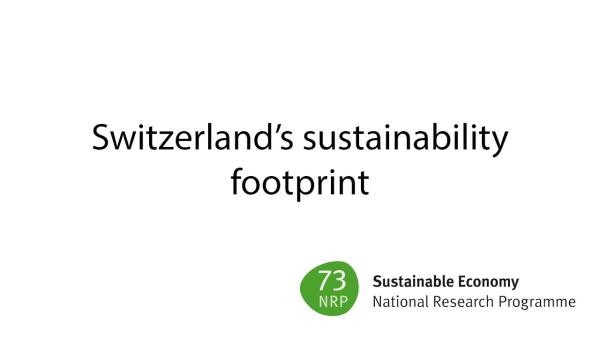Switzerland’s sustainability footprint
In this project we are creating new data on global sustainability inventories. The focus is on a better understanding of the effectiveness and limitations of alternative policies aimed at sustainable consumption patterns and related socio-economic impacts.

We are developing new measures to achieve sustainable footprint targets for the Swiss economy that are to become part of a publicly accessible database. In view of these objectives, we are also examining the effectiveness of alternative tax-based and voluntary instruments. This includes a projection analysis of usage trends and an investigation of contractual restrictions concerning the application of alternative instruments resulting from Switzerland’s membership of the World Trade Organisation. The latter will also serve to identify potential scope for international actions and initiatives on the part of Switzerland.
Background
As a rule, national resource consumption targets focus on national or local production. However, not only producers but also consumers bear responsibility. Due to international trade, local consumption is also a burden on the environment in other geographic regions. A careful analysis of cross-border production links and their impacts on local consumption and global sustainability is an important step towards understanding the effectiveness and limitations of a sustainability policy designed for the long-term.
Aims
Our main aims are to quantify the sustainability situation of the Swiss economy, identify future challenges and evaluate the political options for Switzerland. The four key elements are: (i) The development of sustainability indicators; (ii) The preparation of projections of future emissions and resource use in Switzerland; (iii) The analysis of economic and legal design of instruments for a sustainability policy for Switzerland; (iv) The assessment of the potential for eco-labelling.
Importance
Taking into account the complexity of global supply chains we will provide a scientific analysis of alternative instruments and their basis in international commercial law. By developing public databases we will reduce the threshold costs for conducting broader future research.
Publications
Project leaders
Prof. Dr. Joseph Francois
Universität Bern, World Trade Institute
Project partners
UN International Trade Center (ITC)
World Trade Organization (WTO)


